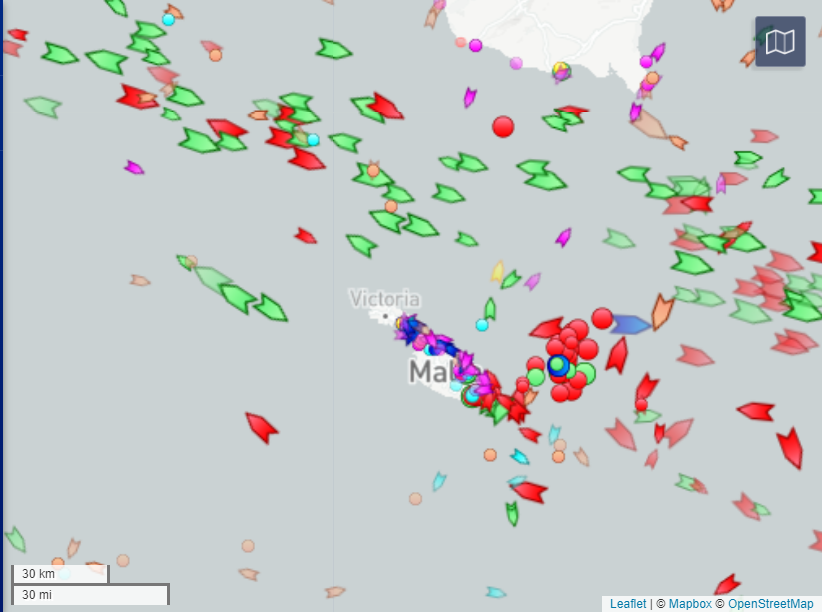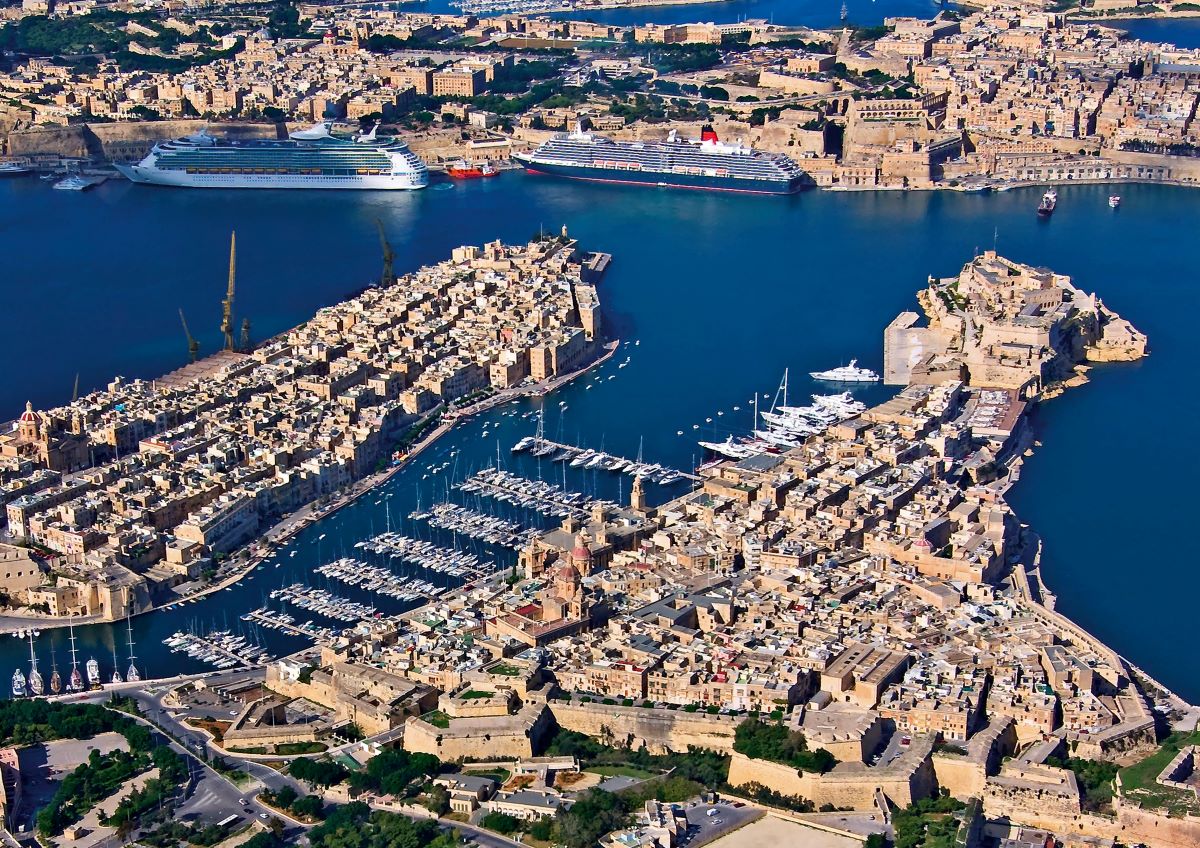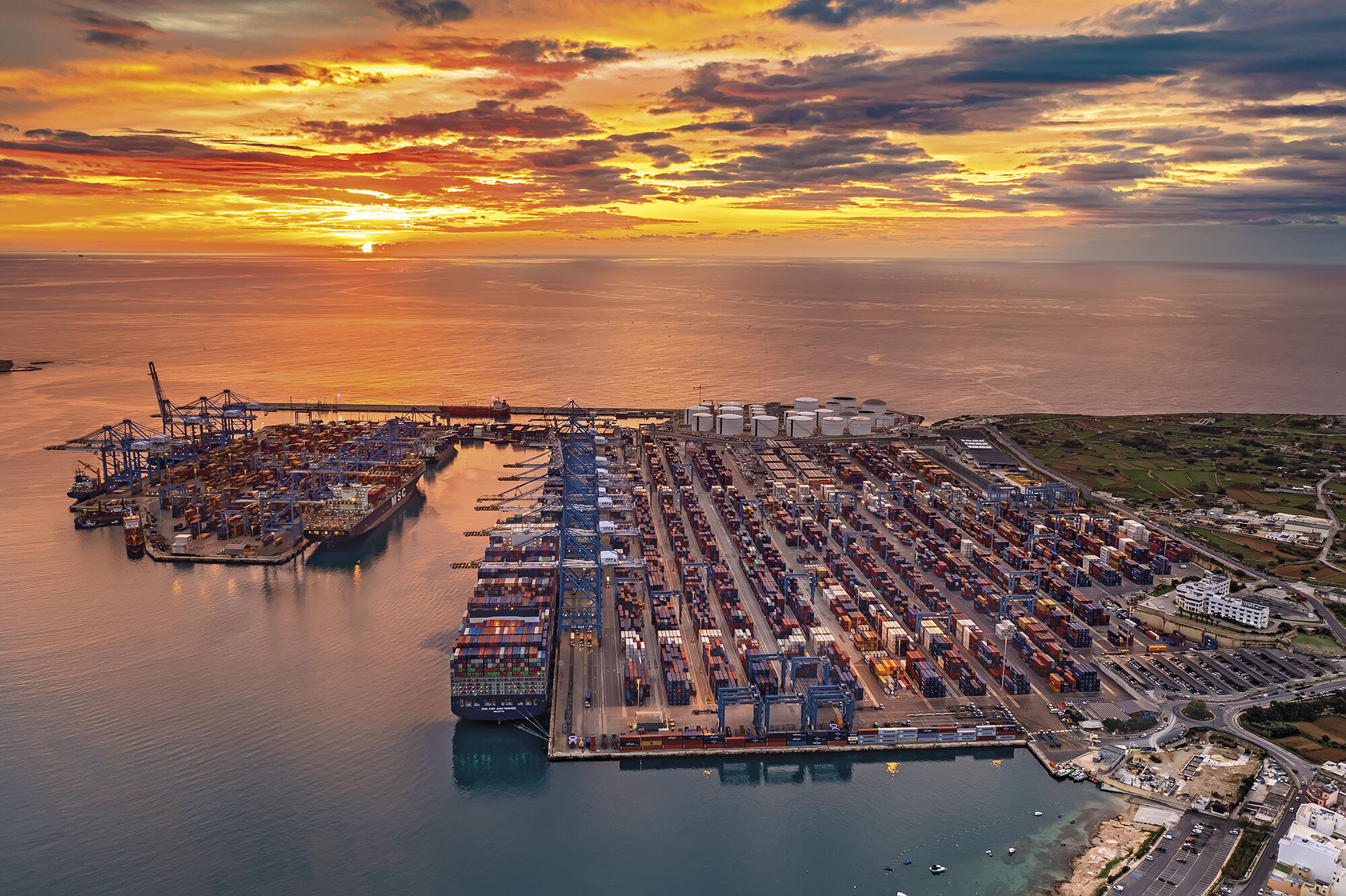Malta has emerged as a key player in the global logistics industry, capitalising on its strategic location, and well-developed infrastructure.
Located at the crossroads of Europe, Africa, and the Middle East, Malta has served as a natural gateway between the continents. Its proximity to major shipping lanes makes it an ideal transhipment hub, facilitating the efficient movement of goods.
Furthermore, the island’s well-connected road and air networks provide seamless connectivity to European and global markets, enhancing its appeal as a logistics centre.

The logistics sector in Malta offers a wide range of services, catering to various industries and trade routes. From freight forwarding and customs brokerage to warehousing and distribution, logistics companies in Malta provide comprehensive solutions to meet the evolving needs of businesses.
To some extent, Malta’s development as a logistics hub is both a necessity and an opportunity. With a growing population and severe limitations of natural resources, the country’s facilities need to be well-equipped to meet the public’s demand along with the needs of businesses.
Aside from the developed aviation industry’s cargo facilities, the Maltese islands were blessed with several natural harbours. Centuries of investment and development have granted the country state-of-the-art ports and a skilled workforce to sustain operations.

Malta Freeport
The Malta Freeport was the first transhipment hub in the Mediterranean sea when it was established by the Government in 1988. To date it is still one of the largest transhipment hubs in the Mediterranean and boasts thousands of vessel arrivals carrying millions of containers a year.
Since its privatisation in 2004, the Freeport has undertaken significant investment in order to upgrade its facilities and is now capable of handling the world’s largest vessels with a capacity in excess of 23,000 twenty-foot equivalent units (TEU).
Stakeholders
In Malta, there are two organisations which aim to represent Malta’s logistics industry: The Association of the Tractor and Trailer Operators (ATTO) and The Chartered Institute for Logistics and Transport (CILT) Malta.
ATTO was set up to represent members of logistics operators connecting Malta with the rest of the world. Their members offer road services across Europe and also to/from Malta. The organisation claims that their members carry 70 per cent of exports/imports to/from the country.
CILT Malta on the other hand represents the Chartered Institute of Logistics and Transport International, which has a global membership of around 30,000 members.
It is responsible for promoting and coordinating research in the field of logistics and transport, advising the Government, and promoting sustainable development in the industry.
Brexit, COVID-19, and supply chain disruptions and the EU Mobility Package
While it is commonly believed that COVID-19 was the most disruptive crisis to have affected the global logistics industry, in Malta’s case it’s actually Brexit.
When this newsroom spoke with ATTO on how the industry was affected by the pandemic, it said that the supply chain issues during the COVID-19 pandemic occurred due to a lack of demand, and operational disruptions caused by mobility restrictions.
However, Brexit, which officially started a just over a month before Malta registered it's first case of COVID-19, was more disruptive and brought on new bureaucratic formalities.
In addition to Brexit and the COVID-19 pandemic, oil prices increased in 2021, forcing sea ferry link operators with Italy to increase their rates to/from Malta. Rates went up again in 2022 due to oil price spikes caused by the Russian invasion of Ukraine.

While oil prices have declined since they peaked in June 2022, they are still well above their price levels seen in 2019 and 2020.
To add salt on the wound, European Union member states had to transpose the EU Mobility Package regulations into law, which introduced rules that put Maltese operators, along with other operators from other island states at a disadvantage.
The two most contentious rules are that it:
- Requires cargo trucks to return to their member state of establishment every eight weeks.
- Places restrictions on cabotage, which is the practice of operators collecting goods and delivering inside another country, which is not their country of origin (e.g., a Maltese company collecting goods in Italy and delivering them in Italy).
Training
Anyone looking to develop their understanding of logistics and specialise in the industry has several options available to them in Malta. The country's educational institutions offer courses ranging from diplomas to a Master of Business Administration degree focused on logistics.
Prospective students looking for a standard diploma in supply chain management and logistics can find a course with the Idea Academy. Otherwise, MCAST offers both an advanced diploma and higher diploma in transport and logistics management.
Interestingly, the University of Malta does not feature any courses dedicated to the industry, however it does include a study unit in certain management courses.
University graduates looking to specialise in the field have the option of enrolling into a Master of Business Administration (logistics and supply-chain management) degree with Global College Malta.
Other industry relevant courses are also provided by CILT Malta, such as quality management and risk assessment, and human resource management.
Future of the industry
Malta's logistics industry has rapidly evolved into a thriving sector, attracting global attention and investment. The country's strategic location, world-class infrastructure, diversified services, growing maritime sector and aviation sector have all contributed to its success.
As global trade expands and recovers, new opportunities may arise for Malta to solidify its position as an integral part of the global supply chain.
Featured Image: Malta Freeport via LinkedIn
WATCH: MEPs in dialogue – Enhancing Europe
The fourth in a series of debates designed to engage citizens in the lead-up to the MEP elections
BELS CEO: Unlocking the power of customisation, size, and passion
Rebecca Bonnici, CEO of BELS, discusses bespoke corporate language training and credits success to their passion and size
St Julian’s registers highest numbers of thefts in bars, restaurants and hotels in the first 3 months of 2024
The figures were tabled in Parliament on Tuesday







